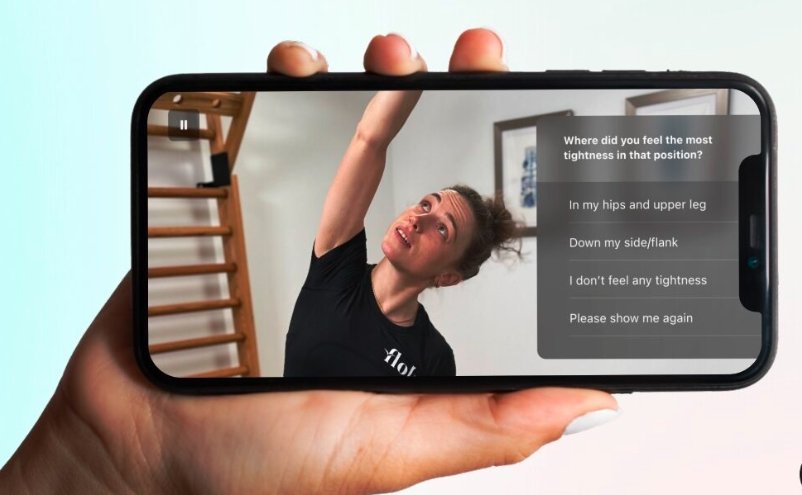A smartphone app is helping to reshape how musculoskeletal pain is managed across Scotland, with early signs pointing to significant NHS savings—and fewer patients left waiting in agony.
Phio, a digital triage and rehabilitation tool built by health-tech startup EQL, has now been rolled out across six Scottish health boards. Designed to give patients instant access to guidance and support for muscle and joint problems, the platform bypasses the GP bottleneck and nudges people into tailored care pathways in minutes—often without the need for a single appointment.
From Orkney to the Borders, this quiet tech shift is offering a radical rethink of how Scotland tackles one of its most expensive and widespread health burdens: chronic pain.
Fast-track to care, minus the waiting room
For patients in NHS Lanarkshire, NHS Highland (including Argyll & Bute), NHS North Highland, NHS Shetland, NHS Orkney and NHS Borders, Phio represents a simple proposition: get started on your physio journey without waiting weeks for an in-person appointment.
Using a conversational AI interface, Phio Access asks adaptive questions based on more than 3,000 possible musculoskeletal (MSK) presentations. Within five minutes, it recommends an appropriate care pathway—ranging from self-management resources to urgent clinician referrals.
Its companion app, Phio Engage, then delivers customised exercise programmes, 24/7 messaging with clinical staff, and a recovery dashboard that monitors user progress in real time.
“We simply cannot train 12,000 extra physios overnight,” said Professor Mick Thacker, head of R&D at EQL. “Digital triage backed by analytics and personalised care is the only realistic way to widen the front door to MSK services and keep Britain’s population moving.”

Impact already visible: cost savings and independence
In NHS Highland alone, early figures show the platform is saving around £134,000 in GP time and £29,000 in physiotherapy appointments annually. More strikingly, three in four patients using the platform are managing their condition independently—without requiring face-to-face support.
Those figures matter. Musculoskeletal pain remains one of the UK’s leading causes of sickness absence and disability. In 2022 alone:
-
19.5 million working days were lost to MSK-related illness
-
That’s the equivalent of one shift every 1.6 seconds
-
MSK pain accounts for 10.5% of all sick leave, with back and neck pain alone draining £1.4 billion annually from the UK’s welfare budget
-
“MSK pain isn’t just a health issue—it’s a societal one,” Thacker said. “It affects employment, family life, social participation and mental health. And unless we innovate, our current system won’t cope.”
From Highlands to Hampshire: growing UK reach
Though still in its early stages, Phio’s reach is expanding. In addition to the six Scottish health boards, the platform is now live in five English NHS regions, bringing its total UK coverage to 11 areas.
EQL’s founding trio—entrepreneur Jason Ward, physiotherapist Peter Grinbergs, and operations lead Samantha Medcraft—built the system specifically to address NHS access pressures in MSK care. But the product is also being picked up by employers and insurers, who see value in its efficiency and its focus on empowering self-care.
Rethinking the pain pipeline
Historically, people experiencing back, joint or muscle pain would face long waits for GP appointments—only to be referred on again for physiotherapy, sometimes weeks later. That time lag often led to worsening symptoms and spiralling NHS costs.
Phio short-circuits that loop.
-
A user answers initial questions through Phio Access
-
They are directed to the right path: urgent care, a physio appointment, or home-based recovery
-
If appropriate, they continue with Phio Engage, completing prescribed exercises and tracking pain
-
Clinical staff are notified if recovery stalls, allowing timely human intervention
-
“This isn’t about replacing clinicians,” said Ward. “It’s about making sure their time is used where it matters most.”
Future ambitions: expanding beyond MSK
While MSK care is the focus today, the Phio platform signals something bigger: a wider shift toward digital-first health triage.
EQL is already exploring whether its adaptive logic and AI-driven pathways could be applied to other chronic conditions. Meanwhile, NHS boards are watching closely to assess if early wins in MSK pain could be replicated in areas like long Covid, mental health triage, or diabetes management.
A cultural shift, not just a clinical one
Even so, experts caution that for digital triage to reach its full potential, patient trust must grow. That means education, reassurance, and ensuring digital tools feel like an entry point—not a dead-end.
Back in Scotland, the early results are promising. Pain is being managed. Waiting times are cut. NHS budgets get some breathing room. And most importantly, patients are feeling in control again.
Because for the thousands suffering quietly with back or joint pain, sometimes the best medicine isn’t more waiting—it’s just being heard, quickly and clearly.
Category: Digital Health | NHS Scotland | Pain Management
Meta Description: A new digital physiotherapy tool is helping Scots manage chronic pain instantly via smartphone, easing pressure on GPs and saving NHS Scotland thousands.
URL Slug: scotland-digital-physio-app-msk-phio-2025
Image Search Keywords: Scotland physiotherapy app, Phio NHS Highland


















